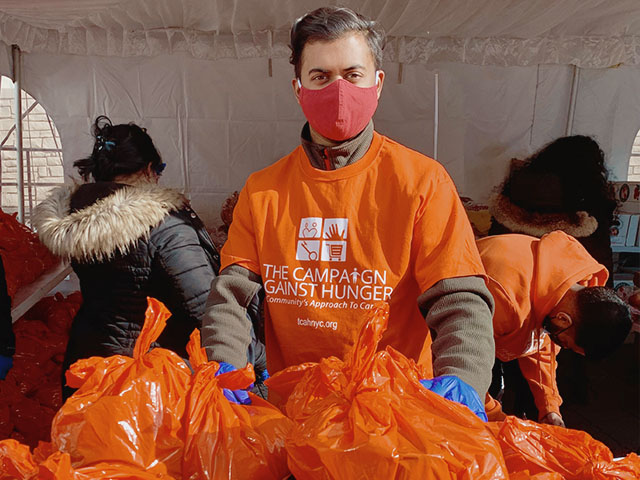NYC soup kitchens are now serving grad students, actors and musicians

Source: https://nypost.com/2020/04/19/food-banks-feeding-more-people-amid-coronavirus-unemployment-crisis/
The vast ranks of newly unemployed are straining the capacities of food banks, soup kitchens and pop-up services across New York City.
One user, Brittany, a 35-year-old Ph.D. candidate at Teachers College at Columbia University, who declined to give her full name, says she started visiting food services at Salem United Methodist Church in Harlem a few weeks ago after her partner lost his bartending job.
“I’ve been going two or three times a week for lunch,” she told Side Dish. “The fresh air makes it seem a little less scary.”
She’s just one of hundreds of neighborhood newcomers — including actors, writers, students, musicians and artists — to have sought help there in the wake of coronavirus layoffs, said Winston Majette, executive director of the Harlem chamber of commerce.
“That’s the dynamic in just two weeks,” Majette said.
City Harvest, a nonprofit that distributes food donated by restaurants and other retail outlets to nearly 250 food pantries and soup kitchens citywide, says it delivered 6.6 million pounds of food between March 9 and April 12, or almost 5 million pounds more than the year-earlier period, according to Racine Lee Droz, City Harvest’s director of food sourcing.
“Before COVID, we saw the same faces every week. Now we see lots of families with young children.”
Food Bank for New York City — the biggest anti-hunger organization in the city — says the number of users could double or even triple from the pre-coronavirus level of 2.5 million.
“In Richmond Hills, Queens, at the River Fund, we had an agency serving 1,000 to 1,500 people before COVID,” said Leslie Gordon, Food Bank’s president and chief executive. “It’s now going up to 5,000 people in line and that could continue to grow. This is not unique. It’s a bellwether for what is happening across New York City.”
As of last week, 791,000 New Yorkers had applied for unemployment benefits, according to the Department of Labor. A New School study found that the state has lost 1.2 million jobs so far, and estimates that one-third of the city could soon be out of work.
On Wednesday, Mayor de Blasio announced a plan to spend $170 million on food for the hungry. “People are literally asking, ‘Where is my next meal coming from?’,” de Blasio said.
Before COVID-19, Salem United Methodist Church had its own soup kitchen, which delivered 500 meals three times a week. But many of its volunteers were elderly and couldn’t work during the pandemic.
Now, Rethink Food, a local nonprofit, has launched a pop-up soup kitchen outside the church and is doing 600 to 1,000 meals a day, five days a week. “We could easily do 5,000 meals a day,” Rethink founder Matt Jozwiak said — and lines would be even longer if it weren’t for fear of infection.
Kumbe, a 52-year-old mother of four from the Ivory Coast who recently lost her job as a caregiver and declined to give her full name, came to the pop-up Friday with her 16-year-old son to grab meals for the family. “Before, I had a job,” she said. “Now, I don’t have anything. I am afraid.”
Diana Lee, founder of the Do-Good Auto Coalition, whose sponsors include Maserati, led a convoy of five cars — including two Maseratis — last week to deliver 2,500 pounds of food from three currently shuttered Pret a Manger outlets to a food pantry operated by the BedStuy Campaign To End Hunger.
“I felt like I had landed in a war zone,” Lee said. “There were hundreds of people lined up around the block. They were fighting for food, shouting at each other when they thought some people were taking too much. It was really hard. I’ve never seen anything like it. By the time we unloaded all of the food, 75 percent of it was already gone.”
Robert Lee, who heads Rescuing Leftover Cuisine, said restaurant-donation pickups from places like Pret A Manger and Paris Baguette, as well as from food manufacturers for airlines, are new and helping to meet the increased demand. “People are demanding that their communities help them. The lines are insane.”
City Harvest’s Droz says the group is bracing for the situation to get worse in the weeks and months to come. “The need will last far longer than when the government reopens the city because so many people are unemployed,” she said. “We plan on operating this way until the end of September.”





